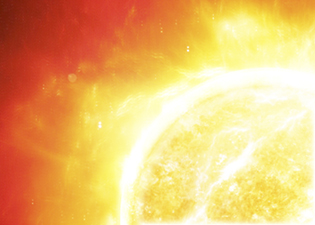With heat and humidity on the rise, the Richland Public Health urges residents to use extra care to avoid heat-related illness. The temperatures above 90 degrees or staying in the high 80s are reasons for awareness.
People suffer heat-related illnesses such as heat stroke and heat exhaustion when the body’s temperature-control system is overloaded. Sweating is the body’s natural way of cooling itself. In some situations, especially in periods of high humidity, sweating alone will not provide an adequate release of body heat.
Conditions that can limit the body’s ability to regulate temperature in hot weather are old age, obesity, fever, dehydration, heart disease, poor circulation, sunburn and drug and alcohol use. Among those at highest risk for heat stroke or heat exhaustion are:
- Infants and children up to 4 years old.
- People 65 and older.
- People who are overweight.
- People who over-exert during work or exercise.
- People who are ill or on certain medications.
- People who are symptomatic (ill) with COVID-19 may also be affected.
Friends and neighbors are urged to periodically check on the elderly and those with illnesses, as they are among the highest-risk groups for heat-related problems. Use the following tips to help beat the heat:
Drink Cool (not cold) Fluids
- Active people should drink two to four glasses (16 to 32 ounces) of cool, non-alcoholic fluids each hour.
- Do not take salt tablets without a doctor’s advice.
- Avoid fluids that contain alcohol or caffeine, because they can add to dehydration and increase the effects of heat illness.
Monitor or Limit Outdoor Activities
- Plan outdoor activities for the early morning or the evening, when the sun is less direct.
- Wear loose-fitting, light-colored clothing.
- A wide-brimmed hat protects against sunburn and helps keep the body cooler.
- Move to the shade or into an air-conditioned building at the first signs of heat illness.
- Very young children may become preoccupied with outdoor play and not realize they are overheated. Adults should mandate frequent “breaks” and bring children indoors for a cool drink.
- Children or adolescents involved in team sports should be closely monitored for signs of heat stress. Consideration should be given to modifying practice or play during the hottest parts of the day.
Know the Signs of Heat Exhaustion
- Remember, heat-related symptoms can come on quickly.
- Symptoms of heat exhaustion are: heavy sweating, paleness, muscle cramps, tiredness, weakness, dizziness, headache, nausea or fainting. People experiencing these symptoms should be moved to a cool, shady or air-conditioned area, and provided cool, non-alcoholic beverages.
- Remove layers of clothing, if possible.
Know the Signs of Heat Stroke
- Heat stroke is a potentially life-threatening condition, characterized by: a body temperature of 103 degrees or higher; red, hot and dry skin with no sweating; rapid pulse; headache; dizziness; nausea; confusion; unconsciousness; and gray skin color.
- People experiencing heat stroke need immediate medical assistance.
- Before help arrives, begin cooling the victim by any means possible, such as spray from a garden hose or by placing the person in a cool tub of water.
Don’t Forget Your Pets
- Animals kept outdoors should have plenty of fresh water and a covered area to get out of the sun and cool down.
- Consider jogging in the early morning or evening to help keep pets and yourself cool.
The best defense against heat-related problems is prevention. Staying cool and making simple changes in fluid intake, activities and clothing during hot weather will help keep you safe and healthy.

